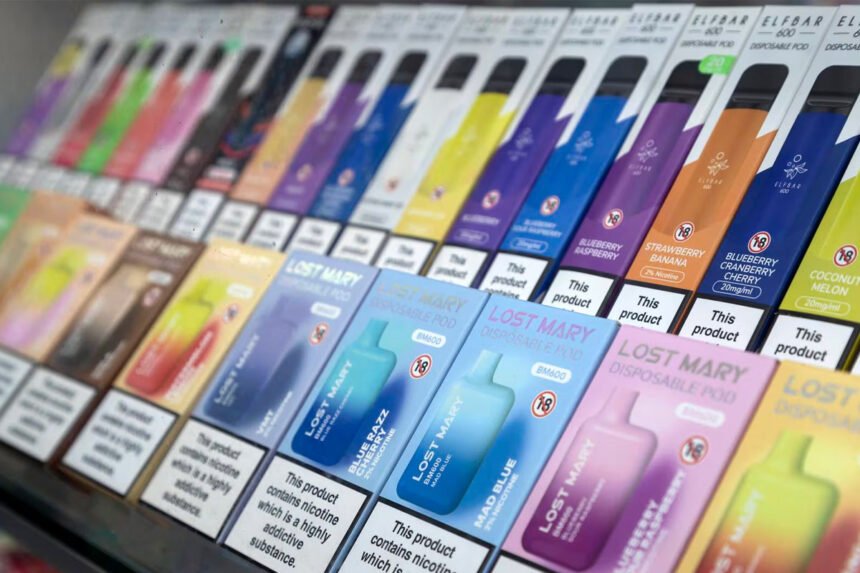The vaping landscape in the United Kingdom has been experiencing seismic shifts as vaping titans Elf Bar and Lost Mary announce a self-imposed ban on the sale of their candy and soft drink flavored disposable vapes. This dramatic move comes as a response to growing concerns over the appeal of such flavors to the younger demographic, and it is a significant development given that these two brands dominate more than half of the UK’s disposable vape market, as per data from NielsenIQ.
The Self-Regulation Move by Elf Bar
Elf Bar’s decision to halt UK sales of flavors like Bubble Gum, Cotton Candy, and the rebranded Gummy Bear flavor—now called “Gami”—is a proactive measure to address criticism that such flavors target young people. The company has taken a stance ahead of regulatory actions, potentially setting a precedent for the industry. It reflects a growing trend where companies anticipate regulatory pressures and adjust their strategies accordingly.
The Vaping Debate: Youth Appeal vs. Adult Preferences
The vaping debate is multifaceted, focusing on the balance between curbing youth vaping and providing adult smokers with alternatives to traditional tobacco products. Critics argue that sweet and fruity flavors are particularly enticing to children and teens, thereby increasing the likelihood of them taking up vaping, which can potentially lead to nicotine addiction. Proponents, however, contend that adult vapers find such flavors crucial in their effort to switch from smoking cigarettes, suggesting that such bans could impact their ability to remain smoke-free.
The UK’s Regulatory Landscape and Potential Repercussions
The UK government, under Prime Minister Rishi Sunak, is considering stringent measures on vaping, such as taxes, flavor restrictions, and the possible prohibition of disposable vapes. This is part of a broader public consultation aimed at addressing the issue of youth vaping without undermining the role of e-cigarettes as a tool for smoking cessation.
The Elf Bar and Lost Mary flavor ban may not silence critics who are fundamentally opposed to vaping. It is also unlikely to eliminate demand for these popular flavors among youth and adults alike. There is a risk that such a ban could pave the way for an influx of counterfeit and off-brand products that could fill the void left by legitimate brands, potentially creating a black market for these flavors.
Lessons from Juul and the Broader Implications
The Elf Bar situation mirrors the experience of Juul Labs in the United States, which voluntarily ceased sales of certain flavored refill pods in an attempt to appease critics amidst claims of a “youth vaping epidemic.” This action did not quell the criticism and inadvertently led to the emergence of a market saturated with unauthorized flavored pods that were compatible with Juul devices.
Similarly, in the UK, the market gap created by Elf Bar’s flavor withdrawal could become a lucrative opportunity for unscrupulous manufacturers to supply the banned flavors. This could result in a loss of control over product quality and safety, possibly presenting a greater public health risk than that posed by regulated products.
Enforcement and the Role of Regulation
The Food and Drug Administration (FDA) in the United States has been particularly vigilant in its enforcement against disposable vapes, targeting Elf Bar products that have not received authorization. The FDA’s stance underscores the importance of regulation in ensuring consumer safety and preventing underage use. However, it also highlights the complexity of regulating a market that is continuously evolving and subject to the influences of both domestic and international players.
